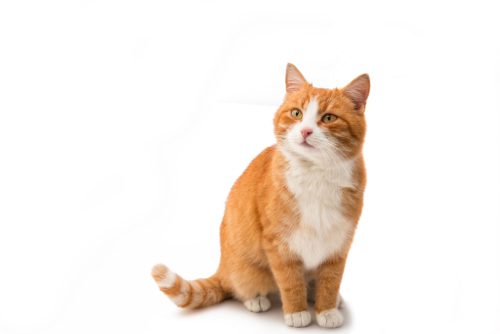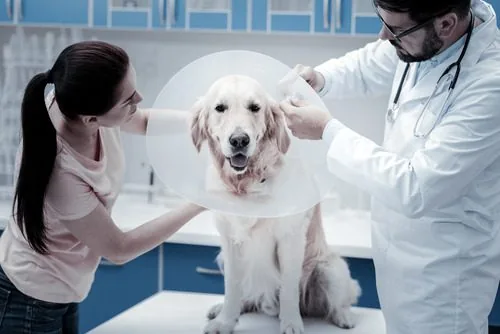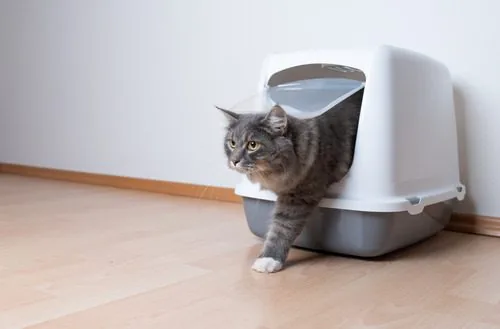Neurological FIP in Cats: Understanding the Most Mysterious Form of Feline Infectious Peritonitis
Feline infectious peritonitis (FIP) is already one of the most confounding illnesses in veterinary medicine. But when it affects the nervous system, it becomes even more difficult to detect and manage. Neurological FIP in cats is considered the rarest and most complex manifestation of this disease and it’s often misunderstood. If your cat has started showing strange behavioral changes, tremors, or difficulty walking, it’s important to understand what neurological FIP might look like, how it develops, and what your next steps should be. Below, we’ll explore the key facts about neurological FIP in cats and when to contact your veterinarian for answers. For further support with your cat’s symptoms, please call Veterinary Healthcare Associates in Winter Haven, FL at (863) 324-3340.

What Is Neurological FIP in Cats?
Neurological FIP in cats is a rare manifestation of a more commonly known viral disease called feline infectious peritonitis. FIP itself is caused by a mutation of the feline coronavirus (FCoV), a virus that is widespread among cats but typically remains harmless. In a small percentage of cases, this virus mutates inside the cat’s body and begins attacking various systems, including, in rare cases, the central nervous system.
When the nervous system becomes the primary target, cats may exhibit neurological symptoms like loss of coordination, head tremors, and changes in personality. Neurological FIP often progresses rapidly and can be difficult to diagnose due to the wide range of clinical signs that may mimic other diseases.
How Does FIP Become Neurological?
Not all cases of FIP affect the brain or spinal cord. In fact, most cats with FIP will show signs of either the wet (effusive) or dry (non-effusive) form of the disease, affecting the abdomen or chest. Neurological FIP is typically associated with the dry form and occurs when the mutated virus invades the central nervous system.
The Path of Infection
Once the feline coronavirus mutates into the FIP virus, it spreads via infected white blood cells. These cells travel throughout the body and can infiltrate various tissues and organs. In neurological FIP, the virus crosses the blood-brain barrier and causes inflammation in the brain (meningitis), spinal cord (myelitis), or both.
Inflammation and Damage
This inflammation can cause significant damage to nerve tissues. As the infection worsens, neurological deficits become more apparent. These changes can happen gradually or progress over just a few days, depending on the severity and location of the inflammation.
Common Signs of Neurological FIP in Cats
Cats with neurological FIP often present with subtle signs at first. Pet owners might notice changes in coordination or odd behaviors that seem out of character. These early symptoms often lead to misdiagnosis or delayed diagnosis.
Early Symptoms
- Generalized weakness or lethargy
- Loss of appetite
- Reduced interest in play or social interaction
- Occasional stumbling or hesitation when jumping
Advanced Neurological Symptoms
As the disease progresses, signs become more concerning:
- Head tilt or circling behavior
- Tremors or twitching
- Seizures
- Abnormal eye movement (nystagmus)
- Loss of balance or inability to walk
- Incontinence or loss of litter box habits
- Personality changes, including increased aggression or confusion
Because these symptoms can overlap with other neurological conditions in cats, including toxoplasmosis, brain tumors, or epilepsy, a thorough veterinary workup is essential.
How Veterinarians Diagnose Neurological FIP
Diagnosing neurological FIP in cats can be challenging. No single test can confirm the condition with absolute certainty, especially in living patients. Diagnosis often involves a combination of clinical history, physical exams, imaging, and laboratory testing.
Physical and Neurological Exam
Your veterinarian will assess your cat’s reflexes, coordination, and mental status. These findings help identify whether the central nervous system is involved and if symptoms align with patterns seen in neurological FIP.
Diagnostic Imaging
Advanced imaging tools like MRI or CT scans may be used to visualize inflammation or structural abnormalities in the brain or spinal cord. These scans can reveal swelling or lesions that suggest viral involvement.
Cerebrospinal Fluid (CSF) Analysis
Analyzing a sample of cerebrospinal fluid can provide critical insight. High levels of protein and specific inflammatory cells in the CSF often support a diagnosis of neurological FIP, although these findings are not exclusive to the disease.
Blood Work and Other Tests
Routine bloodwork can show signs of systemic inflammation, anemia, or changes in liver and kidney values. PCR tests or antibody titers for feline coronavirus may also be performed, but these alone cannot confirm FIP.
Treatment Options for Neurological FIP in Cats
Historically, FIP, including neurological FIP, was considered untreatable. However, recent advancements in antiviral therapies have opened new possibilities for managing the disease. It’s important to speak with your veterinarian about the current options available and what’s appropriate for your cat.
Antiviral Medications
New antiviral medications have shown promise in treating FIP, including neurological forms. While not FDA-approved in the United States at this time, some veterinarians may discuss treatment options based on the latest research and availability.
Supportive Care
Supportive care focuses on maintaining your cat’s comfort and quality of life. This may include fluid therapy, nutritional support, and medications to manage symptoms like seizures or inflammation.
Prognosis
The prognosis for neurological FIP varies widely. Some cats respond well to treatment and regain neurological function, while others may experience ongoing deficits or decline. Early diagnosis and intervention are key to improving outcomes.
How Neurological FIP in Cats Differs from Other Forms
Neurological FIP in cats stands out due to its location and impact. While most cats with FIP develop abdominal or chest fluid accumulation, those with neurological involvement may not display any of those signs.
Diagnostic Challenges
Because neurological FIP doesn’t always produce the hallmark signs of effusive FIP, diagnosis is often delayed. Many cats appear to be suffering from an entirely different neurological condition, which complicates treatment decisions.
Severity and Progression
Neurological forms tend to progress more rapidly and severely than other types. Once neurological signs appear, the disease can advance in a matter of days or weeks without intervention. Prompt action can make a significant difference in your cat’s comfort and outcome.
When Is It Time to Call Your Winter Haven Veterinarian?
If your cat starts acting disoriented, has difficulty walking, or suddenly develops tremors, it’s time to speak with your vet. Even if these symptoms seem mild, they may indicate the early stages of neurological FIP. The earlier your cat is evaluated, the better the chances of exploring viable treatment options. Veterinary Healthcare Associates in Winter Haven, FL is ready to help. Call us today at (863) 324-3340 to schedule an exam or to speak with our veterinary team about your concerns.
Recent Posts
Laparoscopic Spay vs Traditional Spay: What’s Best for Your Dog?
Laparoscopic Spay vs Traditional Spay: What’s Best for Your Dog? When comparing a laparoscopic spay vs traditional…
Laparoscopic Spay: Everything You Need to Know
Laparoscopic Spay: Everything You Need to Know Laparoscopic spay, also called a “minimally invasive spay,” is an…
When is Dog Diarrhea an Emergency?
When is Dog Diarrhea an Emergency? Dog owners know all too well that occasional digestive upset isn’t…
Is Cat Constipation an Emergency?
Is Cat Constipation an Emergency? Cats are often private about their habits, especially when it comes to…
Feline Emergencies: Warning Signs Your Cat is Crying for Help
Feline Emergencies: Warning Signs Your Cat is Crying for Help Cats have a reputation for being independent,…
About Veterinary Healthcare Associates
Veterinary Healthcare Associates in Winter Haven, FL, was established over 30 years ago as Maxwell Animal Clinic by Dr. John Maxwell. Maxwell Animal Clinic was a one-doctor general practice offering preventive care, dentistry, and standard surgical services to the community. As the years passed, Maxwell Animal Clinic evolved into a thriving 10-doctor general, specialty referral, and emergency veterinary practice.








